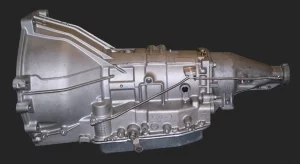The Ford Motor Company is an American-based automobile company & was founded by Henry Ford on June 16, 1903. Starting with 11 partners, today Ford Company is world-renowned for automotive vehicles and is the world’s largest seller of automotive vehicles.
To know about Ford Company’s innovative thinking, revolutionizing the transportation sector, gaining reputation, etc., one must know about the extensive history of Ford Automotive. Contribution to the automotive industry is outstanding, through this article, we will learn about Ford’s indomitable and timeless history.
The Early Years: Henry Ford’s Journey and The Birth of The Ford Motor Company
From childhood, Henry Ford had a special fondness and love for machines. He was born in 1863 and founded the Ford Automobile Company in 1903 with the main objective of making and selling affordable cars. The period after establishing the company was very challenging for him but he successfully overcame all obstacles because of his determination.
Ford’s Impact on The Automotive Industry
In 1913 the introduction of the assembly line was established. The introduction of assembly lines only brought down the cost of making cars and made them very popular with consumers. The assembly line changes made by Ford later became the backbone of car manufacturing and the cars produced in this way became very comfortable and popular.
Suggestion: 11 Best SUVs For Snow That You Must Check Out In 2023
Ford’s notable development was the creation of the Model T car. This model is meant for daily use cars and was originally more affordable for working-class people. When the Model T car was ready, it became more popular and affordable to consumers. This resulted in massive demand for cars and the company focused on more production. Production of Model T cars and assembly line changes made Ford Company the world’s largest car manufacturer in 2014.
The Rouge Complex: Vertical Integration (1917)
In 1917, Ford introduced another revolutionary concept with the construction of the Rouge Complex in Dearborn, Michigan. The Rouge Complex was a massive industrial facility that exemplified the concept of vertical integration. Ford aimed to control every aspect of the manufacturing process, from raw materials to finished vehicles, within this single facility. It had its blast furnaces, a steel mill, a glass factory, and assembly lines.
Mobility and Smart Technologies
Ford has been actively exploring mobility solutions and smart technologies. Initiatives like Ford Smart Mobility aim to provide innovative transportation options beyond traditional vehicle ownership. The company has also invested in autonomous vehicle research, aiming to be a leader in the self-driving car market.
Also Check: List of The 8 Most Reliable Luxury Car Brands in American Market 2023
Ford’s Iconic Cars: Mustang
Mustang’s perfect design and powerful engine at a very low price are appreciated by all. And also it was compared with BMW. One of the successes of the Mustang is that it has paved the way for it and its luxurious design has captured everyone’s attention. The unsurpassed success at Ford is due to its innovation and maximum investment in innovation.
Challenges and Setbacks: Ford’s Survival Through Tough Times
Ford did not disobey the laws of nature, Ford had to go through a series of ups and downs. Economic downturn, differences in consumer preferences, and increased competition faced constant challenges but Ford’s innovative spirit and business acumen helped Ford overcome all odds. Ford’s adaptive mindset is key to their success.
Ford’s Global Impact
Ford is the world’s sixth-largest based on worldwide vehicle sales and the second-largest U.S.-based automaker. And it is gaining popularity day by day.
1. Economic Influence
Ford’s innovative manufacturing techniques, such as the assembly line, have influenced various industries. The principles of mass production introduced by Ford revolutionized manufacturing processes and led to increased productivity and economic growth.
Suggestion: 7 Most Affordable Cars With Paddle Shifters You Can Not Miss In 2023
2. Social and Cultural Impact
The introduction of the Model T and its affordability transformed American society. It gave people newfound freedom and mobility, allowing them to travel longer distances and explore new opportunities. The car also became a symbol of American culture and freedom, depicted in various forms of art and literature.
3. Employment Opportunities
Ford’s expansion created job opportunities for millions of people worldwide. The company’s manufacturing plants provided stable employment, contributing to the growth of communities and regions.
4. Challenges in the Modern Era
While Ford’s history is marked by numerous achievements, the modern era has presented its own set of challenges. The automotive industry is undergoing a profound transformation, with new players, technologies, and consumer expectations.
Conclusion – Ford’s lasting legacy in the automotive industry
Ford’s impact on the auto industry will forever be unforgettable because Ford’s story is one of triumph and achievement. Ford’s history, innovation, determination, and resilience prove that Ford has dominated the automotive industry since its inception. The Model T and assembly line innovation made Ford unique and stood out from the crowd, resulting in Ford’s highest success and worldwide recognition. You can visit Dahl Ford which is a trusted Ford Dealership in the Cedar Rapids area.






